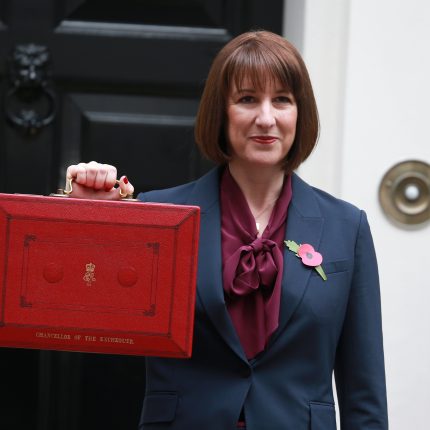
Britain’s entrepreneurs deserve better than Rachel Reeves’ red tape revolution
30 Oct 2025
This article was first published on LBC.
Shortly after she was made Chancellor of the Exchequer, Reeves pledged to make the current administration the most “pro-growth, pro-business” government the country has ever seen. Stirring stuff, but talk is cheap. Looking beyond the slogans and speeches, it is clear that Rachel Reeves’ policies are stifling entrepreneurship, not inspiring it.
Britain needs a rejuvenation of its animal spirits, a revival of its entrepreneurial instincts. This can only be achieved in an environment that promotes new innovative ideas, risk takers, and thriving businesses of all scales. So far, the Chancellor’s approach has been a mixture of bureaucratic overreach, higher taxes, and mixed signals that have frequently spooked the markets. It is not a surprise that businesses are losing confidence and questioning whether Reeves knows what it means to fuel economic growth.
Despite her ‘open for business’ mantra, Rachel Reeves has hiked Capital Gains Tax (CGT), including on gains covered by the Business Asset Disposal Relief (BADR), which spooked investors and entrepreneurs. For small businesses, freezing income tax thresholds is another stealth tax that sees more of their earnings handed over to the state while their operational costs rise thanks to inflation, increased employer NI costs, and some of the highest energy prices in the developed world. This is not just anti-growth; it is anti-enterprise. The people Rachel Reeves purports to support, inventors, risk-takers and wealth creators, are being punished for their success.
We were told that the days of excessive regulation were behind us. Rachel Reeves likened red tape to a “boot on the neck of businesses” and urged regulators to ditch excessive caution. Instead, businesses have been met with new requirements, further compliance demands, and more intrusive local authority oversight. This is borne from a growing culture of excessive consultations and bureaucratic reviews that only end up making business harder to operate. For the convenience store owner, the tech start-up founder, or the pharmaceutical manufacturing SME trying to thrive, there is no substantial relief.
This mixed signalling from the Chancellor has confused the markets, making Britain less attractive to investors. In a recent indication of how little confidence investors have in Britain, London recently dropped out of the top 20 IPO Markets.
All this is a natural consequence of the Chancellor’s economic philosophy. Known colloquially as ‘Securonomics’, it is the promotion of an interventionist state that seeks to tilt the scales of the economy towards government objectives, whilst significantly increasing workers’ rights and protections. This signals to businesses that “the state knows best” and is antithetical to entrepreneurs’ motives to earn a living and reinvest for more success.
Britain’s entrepreneurs do not need another government promising to be “pro-business”, while doing the opposite. They need a government that understands the fragility of Britain’s business eco-system and is willing to allow it to thrive unencumbered by complicated regulations and burdensome taxes. As the Autumn Statement approaches with rumours of tax rises, the Chancellor has an opportunity to signal that she is pro-business after all. Rather than further tax hikes, she should cut bureaucracy. This would be the surest signal she would make to show that she is indeed pro-business.

